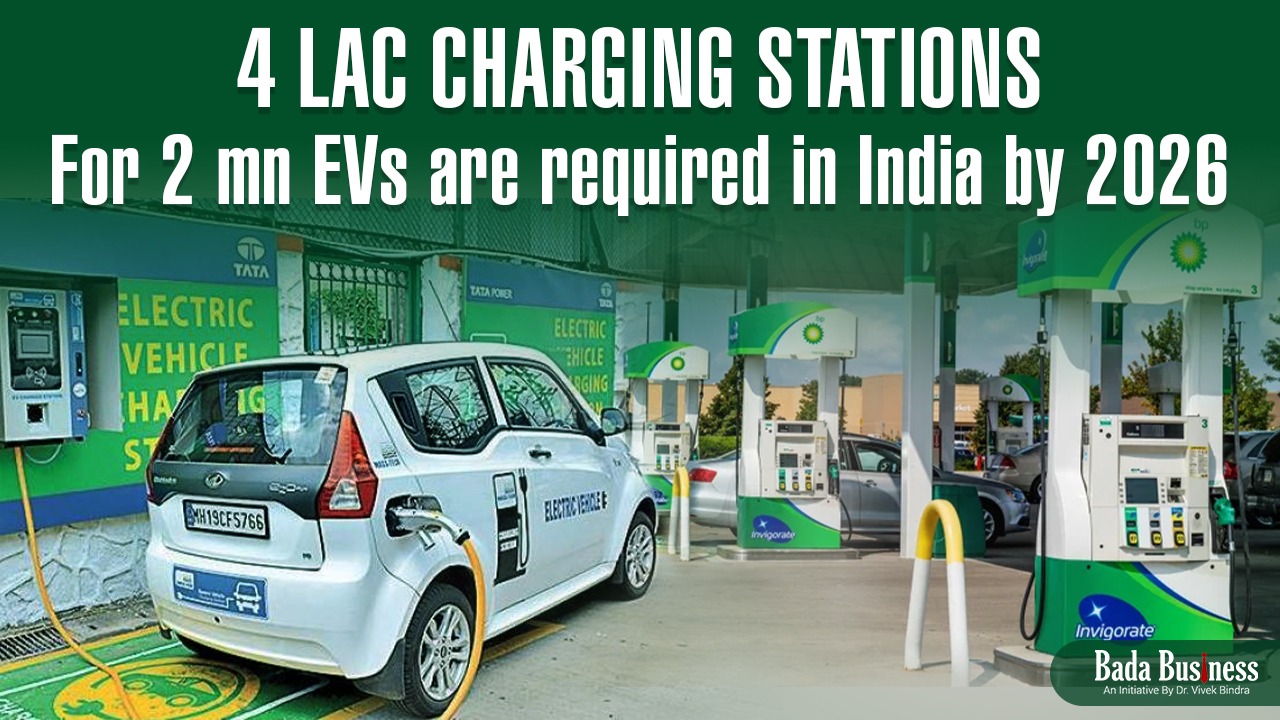As the Indian government plans for a mass scale shift to electric vehicles (EVs) by 2030 for both personal and commercial vehicles, the ambitious plan presents challenges along with opportunities.
According to a Grant Thornton Bharat-FICCI report, ‘the country will require 4 lakh charging stations for more than 20 lakh EVs in the country by 2026.’
‘To achieve 100% EVs by 2030, several sectors will have to play a significant role, which includes lower technology cost, higher pollution level, and a complete government support’, the report also added.
The study also claims that the EV ecosystem is tightly interlinked with the electric vehicles and charging stations, further coupled with battery technologies and electricity markets. It also suggested the active participation of electric distribution companies in the deployment and classification of charging infrastructure to empower Electric Vehicle Supply Equipment (EVSE).
To bring down the EV costs, the study recommended simplifying the designs and partnerships during this gradual transit of the country towards electric mobility.
There are around 1,800 charging stations in India catering to approximately 16,200 electric cars, which also includes the fleet segment, as of March 2021. However, these numbers are way too less than the country will require achieving its target of 100% EVs by 2030, claims SMEV.
The global sales of zero-emission BEVs in 2020 have increased by 39% to 3.1 million units as compared to 2019. EV manufacturers across the globe have spent a huge amount of funds to improve the efficacy and availability of EV charging stations. As a result, the fastest charging station takes no more than 15 minutes to recharge an electric vehicle.
The total passenger car market has been declined by 14% and the new customers who are planning to buy a new vehicle are giving preference to EVs for a healthy and clean environment.
Also read this: ICRA: International Prices Are Expected To Aid Indian Steelmakers Tide Over The Second Covid-19 Wave


















